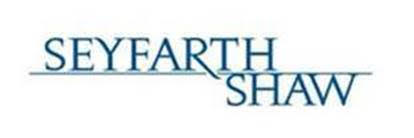Will the NLRB Let Employers Go Back to Conducting Confidential Investigations in the Workplace?
Seyfarth Shaw LLP – Paul Galligan and Samuel Sverdlov
USA December 15 2017
Seyfarth Synopsis: On Friday, December 1, 2017, newly appointed NLRB General Counsel Peter Robb issued a memo containing a broad overview of his initial agenda as General Counsel. It previews many anticipated developments during the Trump Administration. Our blog is exploring a different aspect of the memo each day during the first three weeks of December. Click here, here, here, here, here & here to find prior posts.
In Banner Health Systems, 362 NLRB No. 137 (June 26, 2015) (originally decided in 2012 and reaffirmed upon remand following Noel Canning), one of the Obama Board’s more overreaching decisions, the 2-1 Board majority found that the employer unlawfully maintained a policy of asking employees during investigatory interviews not to discuss the internal investigation with others. The Board majority did so based on testimony by a human resources investigator, who asked an employee not to discuss the on-going investigation with anyone, and the fact that the investigator sometimes used a checklist form that contained this point. The investigation did not even involve Section 7 activity, but the majority nevertheless reasoned that employees could reasonably construe this refrain as impeding their Section 7 rights.
The Board majority proceeded from there to announce a new rule prohibiting employers from promulgating general rules barring employees from discussing ongoing investigations. The Board majority provided limited exceptions if witnesses needed protection, evidence is in danger of being destroyed, testimony is in danger of being fabricated, or there was a need to prevent a cover up. (On appeal, the DC Circuit remanded this part of the ruling back to the Board based on the lack of substantial evidence.)
As it stands, the Banner Health Systems rule and the limited exceptions have made it virtually impossible for employers to create meaningful guidelines for internal investigators to instruct employees on the confidentiality of investigations.
The lengthy but sharp dissent from Phil Miscamarra provides an indication of how the new Trump Board and the Division of Advice will review Banner Health Systems. Yesterday’s decision in Boeing Company (3-2 decision overruling the “reasonably construe” standard of Lutheran Heritage Village-Livonia, 343 NLRB 646 (2004) makes it a racing certainty that the Obama Board decision in Banner Health Systems will no longer fly.
AT&T Reaches Deal With Union Workers After Yearlong Dispute
By John Bonazzo • 12/14/17 2:21pm
“Mobilizing your world” has a whole new meaning.
Last night AT&T reached a contract agreement with 21,000 employees who are members of the Communications Workers of America (CWA). The union deal ends an 11-month contract dispute with the wireless carrier, which included a three-day strike that shut down hundreds of stores.
“This is a real breakthrough for protecting jobs and working conditions in the wireless industry,” Bob Master, director of legislative/political and mobilization activities for District One of CWA, which represents workers in New York, New Jersey and New England, told Observer. “This is a tribute to the unity and militancy of our workers.”
The new four-year agreement impacts workers in 36 states and Washington, D.C. It includes a 10 percent wage increase, which means AT&T wireless retail workers will be paid an average of $19.20 per hour. That’s about 74 percent more than the national average pay for retail workers—only eight percent of U.S. workers are paid $15 an hour or more.
AT&T store employees get an extra benefit: $2,500 in compensation that had been paid out in commissions will now be part of these workers’ base pay. That means they will make more money no matter how many plans they sell.
Call center workers also get extra protections, including guaranteed jobs in America. AT&T further promised to increase the portion of customer service calls handled by CWA members by 80 percent. This bucks the trend of most wireless companies, which reroute phone queries to call centers outside the United States.
AT&T also committed to finding employees new jobs if the call center or retail store where they work closes.
The deal is now subject to a vote from union membership. The voting period lasts until January 12.



